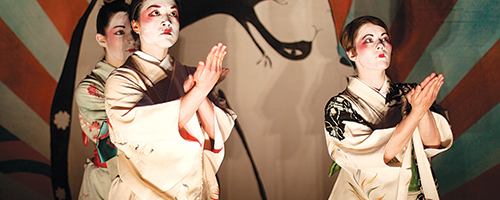Press Play
Morrissey
Ringleader of the Tormentors
I’m a really big Morrissey fan. Ever since I first discovered The Smiths in my senior year of high school, I’ve worshiped Morrissey like other music people worship Bob Dylan or Bruce Springsteen. His music, whether with The Smiths or solo, connects with me on a level that’s almost difficult to talk about without turning this review into a therapy session; let’s just say I’ve probably listened to “Never Had No One Ever” a few more times than is healthy.
Critics often accuse Morrissey of lyrically whipping a dead horse, spending album after album chronicling his failed love life and his depression, with the odd song about working-class thugs. But artists like Tom Waits and Nick Cave have spent their careers mulling over their own specific lyrical territory, and they’re critical darlings. I think what bothers so many critics is Morrissey’s refusal to act his age. A man with gray hair shouldn’t still be singing songs about his failure to find love; that’s the lyrical province of young people.
So perhaps those critics will be pleased that Morrissey has moved onto a new subject on his new full-length, Ringleader of the Tormentors: death. Not that love and depression don’t make their appearances, but death seems to be the specter haunting the Moz. At least half the songs on the album deal with death in some way. In “On The Streets I Ran,” Morrissey jokingly pleads with God to take anyone (“the stillborn, the newborn, the infirm”) but him. And in “I’ll Never Be Anybody’s Hero Now,” he declares that his “true love is in the ground/And I’ll never be anybody’s hero now.”
On the album’s most affecting ballad, “Life is a Pigsty,” Morrissey sings, “even now in the final hours of my life I’ve fallen in love.” Whether he’s speaking figuratively or literally, what he seems to be saying is that no matter his age, he’s still going to be the same person. This idea is reiterated in the song when he sings, “I’m the same underneath/But this you – you surely knew.” For Morrissey, the problems he faced during his younger years aren’t simply young-people problems, but problems with life itself. Finding love, finding yourself, feeling at home in the world, all these things are issues that haunt us through our entire lives.
But then there’s the final song, “At Last I Am Born,” and that contradicts everything I just said. While a song of its kind is not completely new territory, its unrestrained positivity certainly is. Declaring he’s finally “been born,” Morrissey throws off the shackles of unrealized desire and clinical depression. Without specifying exactly what “being born” means or what has changed, he still gives the powerful impression that he’s found some sort of peace in his life. But it’s hard to not see such a song as only one strong statement on an album that’s full of them. To simply assume that Morrissey’s found happiness because “At Last I Am Born” is so out of character seems na퀨͌�ve. “Born” or not, he’s still human and still searching for all the same things he’s been searching for: love, understanding and a sense of belonging.



